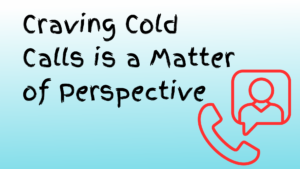
Blog
Notes:
If you’ve been an avid listener of this podcast, you know that I have some very strong opinions about onboarding. I just think most companies don’t do it right, and it’s in their best interest to invest in their onboarding.
Enter Brian Geery, a previous guest in this podcast who appeared several times. Recently, he posted on LinkedIn about a project he is working on: A list of 100+ best practices in onboarding. Brian compiled this enormous list of best practices for onboarding Sales Engineers by interviewing sales leaders of all sorts, people who have built successful teams.
What are the main areas we need to be working on in onboarding? What are the key best practices in doing this thing right? We answer this and more in this episode.
Key Takeaways:
- Why mentorship is exciting for a new hire
- Why mentorship is also good for the mentor
- The “dark side” of mentorship
- The importance of writing a position description for mentors
- Why a mentor and a mentee should also have a written agreement setting their expectations of each other
- Ramzi’s bad experiences as a mentor
- How to gamify the onboarding process and why
- How to make meetings more fun
- Why a sales enablement team should have a copywriter
- Why hiring teams should define ideal candidate qualifications
- How hiring teams could identify the criteria they set for applicants
- Ramzi’s contribution to Brian’s growing list of best practices in onboarding
- Why it’s important for SEs to understand the benefits of the technology they sell
- What we can learn from the movie Inception when doing a demo
- The relevance of proof of concept in the SE onboarding process
- Key performance indicators to track during the onboarding process
- The importance of tweaking your KPIs once in a while
- When should companies outsource
- The usefulness of peer-to-peer learning
- What weekly knowledge checkpoints are, and why are they critical
- Making tough choices when there’s no match during the onboarding process
Quotes:
You can go to your mentor and ask questions that you may not want to ask your Sales Manager because you feel like you should already know the answer. — Brian Geery
Some people want to become leaders, not for the right reasons. — Ramzi Marjaba
If the leader of the sales engineering team is onboarding new Sales Engineers and they think that this idea of a mentor is good, the key thing is to write a position description. — Brian Geery
Think of ways to make it fun and interesting. And to me, that is friendly competition. Ideally, when you’re onboarding people, it’s multiple at a time. I think it’s hard to gamify if you’re just onboarding a couple of people. But if you have, let’s say, four or more, then you can create this friendly competition. And there are so many ways to do that. — Brian Geery
Enablement is the continuation of onboarding. — Ramzi Marjaba
If your new hires are sitting in a two-hour meeting, for example, that’s mostly PowerPoint. Why are you doing that? That’s mean. — Brian Geery
The manager needs to own new hire onboarding. And if new hires are going through boring sessions, day after day, that’s up to the manager to fix that. — Brian Geery
The best person to train an SE is another SE, someone who’s doing the job, someone who’s been doing the job. — Ramzi Marjaba
Be prepared to sell top candidates on why they should want to work at your company. Remember, the interview is a two-way street. And top candidates typically have options because every smart manager wants to hire the best. — Brian Geery
Top performers are never on the street for very long. And for some reason, it seems like in recent years, interview processes have been extended than shortened. — Brian Geery
Schedule all your interviews one shot before they even have the first interview, and then cancel if you don’t want to move forward. — Ramzi Marjaba
Most SEs don’t understand the business problem that their product solves. And most SEs are left to figure it out on their own. And what that means [is] if the SE is involved in a discovery call, for the first, two, three years, all they’re asking about is the technical aspects of a solution. — Ramzi Marjaba
There are people that shouldn’t graduate. And you know what, that’s okay. We do our best to hire the best. And we try, and we’re very good at it. But sometimes you mis-hire like it just happens. So let’s have the ability to fail people out of New Hire onboarding. — Brian Geery
The KPIs or whatever you’re going to reward the SEs on [are] very dependent on the behavior you’re trying to incentivize. — Ramzi Marjaba
The basic gist of the strategy session is double down on onboarding like it’s critical. Get it right. Make it unparalleled. Commit to a plan, invest the time, money, and resources. And you’ll get a return. Don’t and it will cost you. — Brian Geery
You have to make tough, tough choices. There will be times when you realize in the process of onboarding, that there’s not a match. You’re so much better off for both of you making the choice to separate after, you know, a month of new hire onboarding and letting them get out in the field than six months later, making the same decision. — Brian Geery
Links from the show:
- Connect with Brian Geery on LinkedIn
- Listen to my previous conversation with Brian about demos
- Here’s another episode with Brian on scripting
- The Four Disciplines of Execution by Chris McChesney, Sean Covey, and Jim Huling
If you enjoyed this podcast, please support the show by dropping a review or rating on iTunes – https://podcasts.apple.com/us/podcast/we-sales-engineers-resource-for-sales-engineers-by/id1378292171



